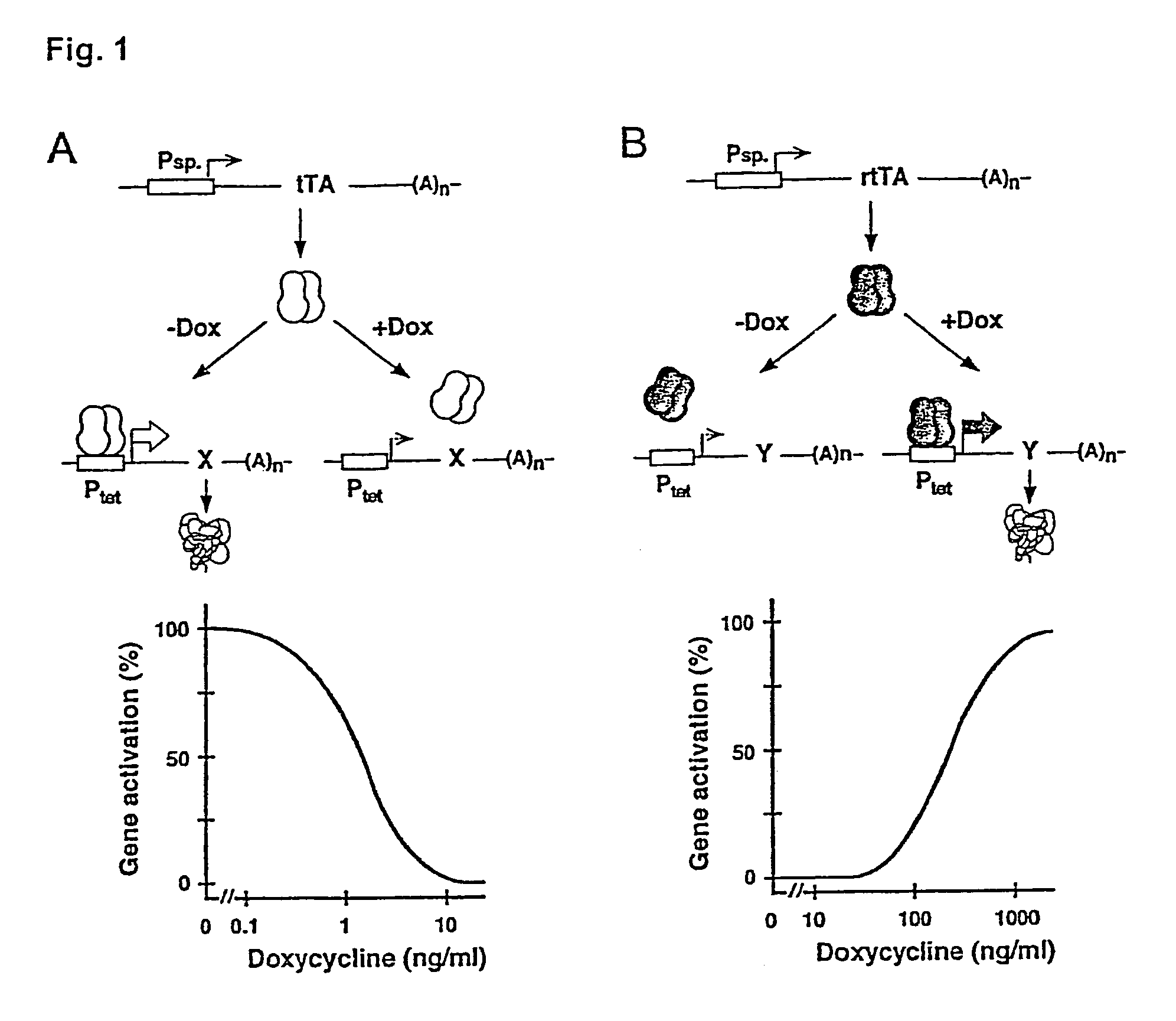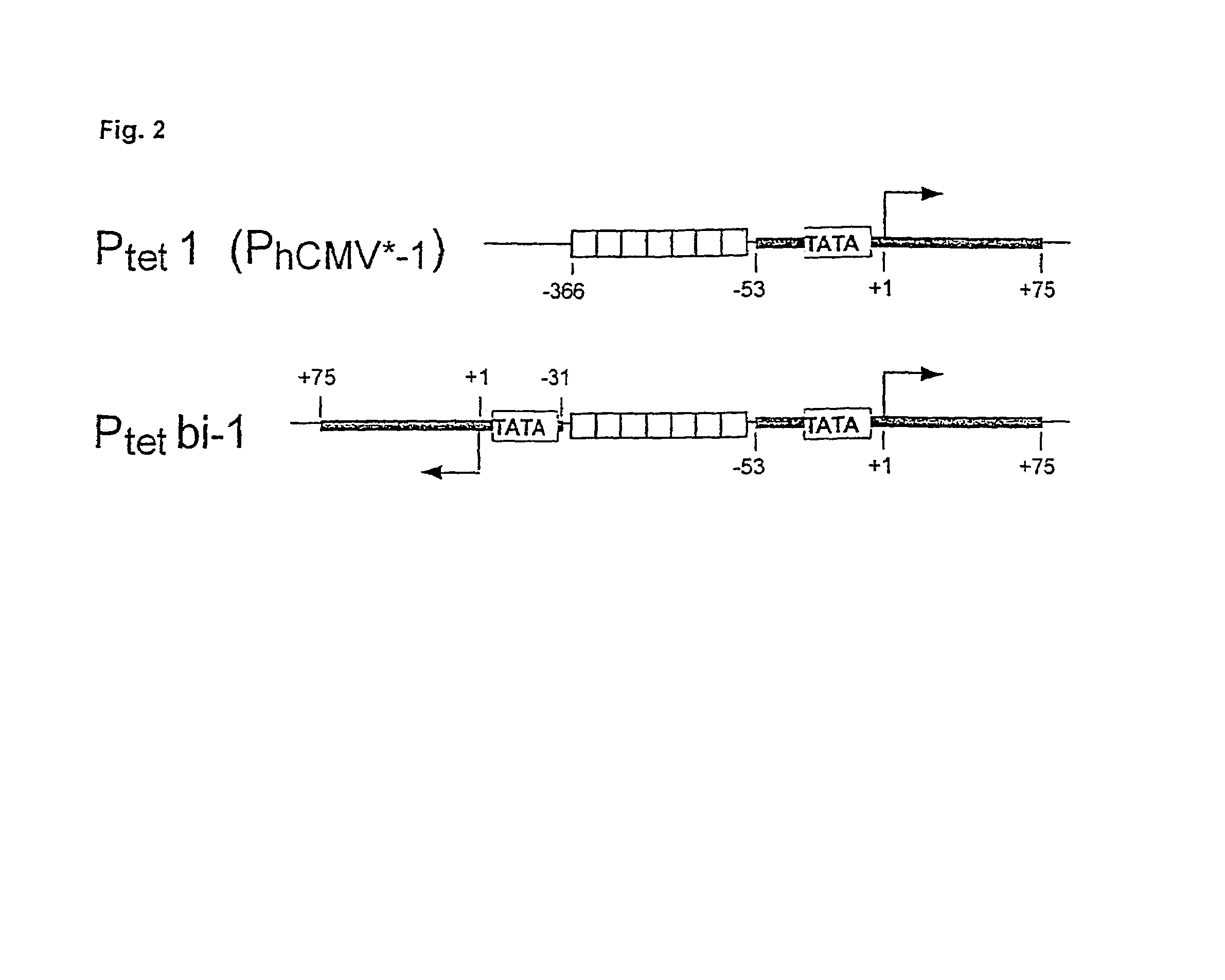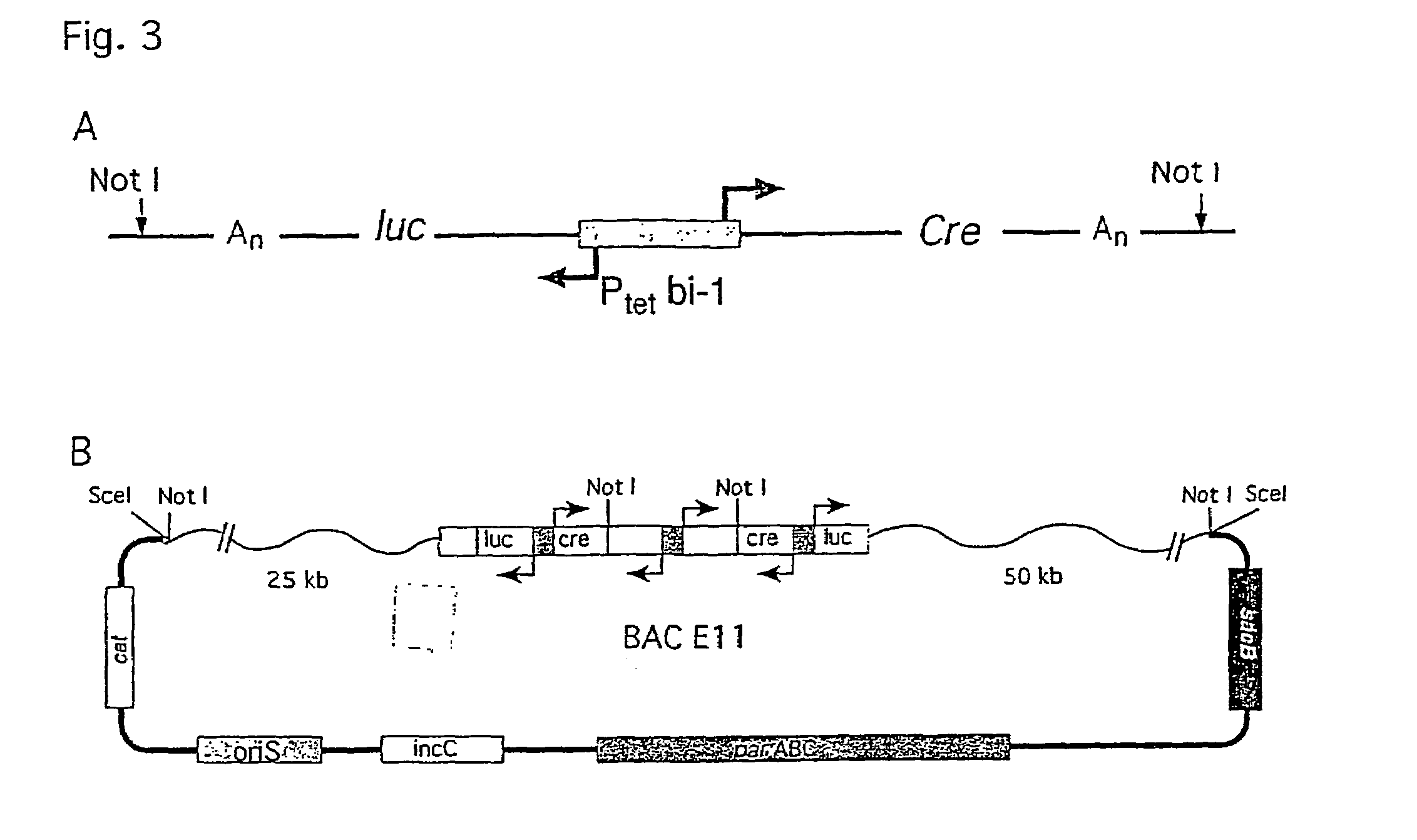Chromosomal loci for the stringent control of gene activities via transcription activation systems
a transcription activation system and chromosomal loci technology, applied in the direction of sugar derivatives, biocide, plant growth regulators, etc., can solve the problems of personal and financial resources binding, and reduce the maximum level of gene transcription that can be achieved
- Summary
- Abstract
- Description
- Claims
- Application Information
AI Technical Summary
Benefits of technology
Problems solved by technology
Method used
Image
Examples
example 1
Introduction
[0052]The tetracycline (Tc) controlled gene expression systems (Tet systems) have developed into widely applicable tools for the study of gene function in vivo (1,2). Particularly in the mouse, presently the prime model of mammalian genetics thanks to transgenesis and embryonic stem cell technology, the principle of conditional gene activation as provided by the Tet systems allows to dissect gene functions in vivo with unprecedented precision. Indeed, exploiting the Tet systems in vivo is increasingly yielding new insights into such fundamental processes as development, behaviour and disease (3, 4, 5, 6). Thus, the Tet systems have considerable impact not only on basic research in biology, but also on applied aspects of life sciences including but not limited to[0053]development of cell lines for high throughput screening and fermentation[0054]novel animal models for human diseases[0055]gene therapy[0056]sterile insect control[0057]plant breeding, etc.
[0058]The principle...
example 2
Summary
[0107]The strategy of modulating gene activities in vivo via CRE / loxP recombination would greatly profit from subjecting the recombination event to an independent and stringent temporal control. Here, a transgenic mouse line, LC-1, is described where the expression of the cre and the luciferase gene is tightly controlled by the Tet system. Using the R26R mouse line as indicator for CRE activity and mouse lines expressing tetracycline controlled transactivators in various tissues, it is shown that (i) in the non-induced state no recombination event is detected throughout development and adulthood of an animal; (ii) upon induction efficient recombination occurs in the adult animal in all tissues where tTA / rtTA is present, including hepatocytes, kidney cells, neurons and T lymphocytes; (iii) no position effect appears to be caused by the LC-1 locus. Moreover, using the novel rTALAP-1 mouse line, it is demostrated that in hepatocytes complete deletion of the loxP-flanked insert i...
PUM
| Property | Measurement | Unit |
|---|---|---|
| concentration | aaaaa | aaaaa |
| length | aaaaa | aaaaa |
| affinity | aaaaa | aaaaa |
Abstract
Description
Claims
Application Information
 Login to View More
Login to View More - R&D
- Intellectual Property
- Life Sciences
- Materials
- Tech Scout
- Unparalleled Data Quality
- Higher Quality Content
- 60% Fewer Hallucinations
Browse by: Latest US Patents, China's latest patents, Technical Efficacy Thesaurus, Application Domain, Technology Topic, Popular Technical Reports.
© 2025 PatSnap. All rights reserved.Legal|Privacy policy|Modern Slavery Act Transparency Statement|Sitemap|About US| Contact US: help@patsnap.com



